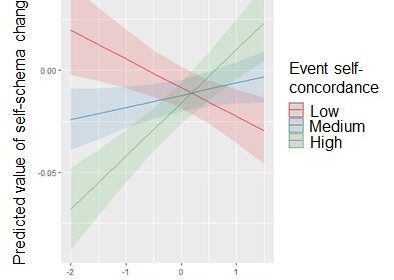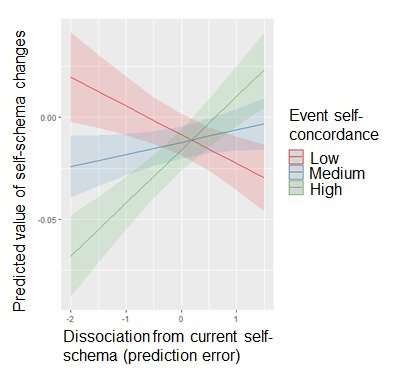Negative self-perception appears to self-perpetuate, researchers find

At the end of a bad day, how do you feel about yourself? The answer could indicate not only how your self-perception formed, but also how it renews, according to experimental results from a research group in Japan.
They published their findings in Cognitive Therapy and Research.
“People with psychiatric disorders including major depression tend to hold negative self-schema such as ‘I am incompetent’ and ‘I am a loser in life,'” said corresponding author Noboru Matsumoto, associate professor in Shinshu University’s Division of Psychology. Self-schemas are what a person thinks of themselves. “However, how people form and update self-schema and what individual differences are involved in these processes are unresolved issues in scientific research.”
To investigate the formation and renewing of self-schema, the researchers designed a psychological experiment in which undergraduate students believed they were testing a machine learning-based personality assessment. After each question in a fictional psychological test, the participants were presented with one sentence of feedback on their personality traits, behavioral tendencies and future prospects.
All participants received the same feedback in a random order. They then rated each feedback sentence on how well it applied to them. After completing the assessment, they were given a surprise memory test in which they had to recall the feedback received.
“We found two important factors are involved in self-schema formation and updating: emotional valence—positive or negative—of the event experienced and how much people think the event is consistent with their current self,” said Matsumoto. “Cognitive reactivity, or the tendency to overreact when in a negative or depressive mood, was associated with greater self-schema updating.”
The experiment is based on the mnemic neglect paradigm, which describes how people selectively forget negative information about themselves. People with psychological disorders, such as depression, are less likely to exhibit mnemic neglect and are more likely to remember the negative information.
According to Matsumoto, people who already view themselves negatively are more likely to remember and incorporate negative feedback because it aligns with their already-established self-perception. This is more deeply enforced by cognitive reactivity, Matsumoto said, since people with negative self-schema are also more likely to take even minor negative information more personally.
To further explore how self-schema are established in the first place, the researchers also ran simulations of self-schema development.
“In contrast to laboratory settings, where the participants already hold well-established self-schemas, the simulation can demonstrate how self-schemas develop without previous knowledge,” said ‘Matsumoto. “The simulation allows us to mimic the influence of accumulated positive and negative experiences from early life on self-schema development. By manipulating parameters related to cognitive reactivity, we can evaluate how individual differences influence the dynamics of self-schema development.”
From the simulations, the researchers found that when people with high cognitive reactivity experienced some negative events in early life, negative self-schema developed and strengthened—even if they experienced many positive events later in life.
Source: Read Full Article
